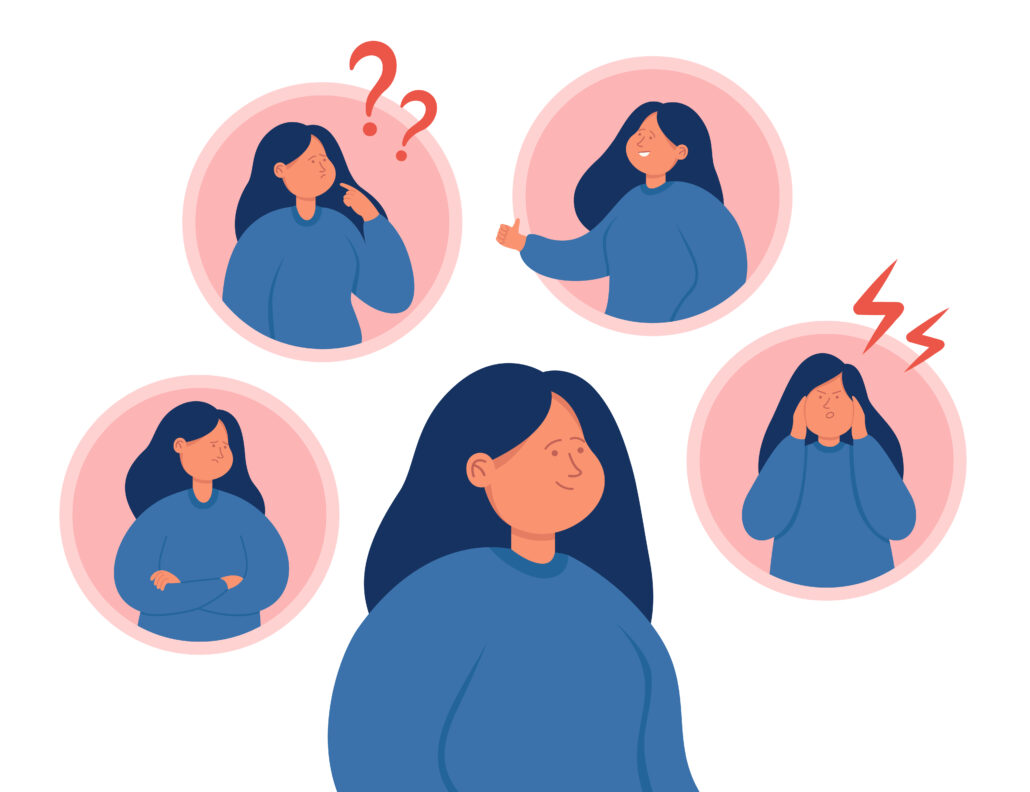Remote Psychosis Research Study
Researchers at the University of Minnesota are conducting a study to better understand health decisions. They are seeking participants with psychosis symptoms or a diagnosis of psychosis.

Fast Facts

Diagnosed with psychosis or have psychosis symptoms

18-70 Years Old

Compensation Provided

Remote
Study Background
Researchers at the University of Minnesota are conducting a study to better understand how individuals make health decisions, particularly in relation to vaccines and other preventive health measures.
Individuals with Severe Mental Illness (SMI) are known to face significant health challenges, including a higher risk of contracting and dying from vaccine-preventable diseases like influenza and COVID-19. People with SMI are 7-10 times more likely to contract these diseases and 3-7 times more likely to die from them compared to the general population. Despite this, vaccination rates among individuals with SMI are significantly lower — up to 41% lower for influenza vaccines.
This study aims to explore the factors that influence health decisions among individuals with psychosis symptoms. Specifically, the research focuses on understanding why individuals with SMI are less likely to seek out vaccines and other preventive health measures. By examining mental health experiences, the way people interpret health-related information, and the role of media in shaping these decisions, the study hopes to identify ways to improve communication and make health information more accessible to those with mental health conditions.
Join us in advancing mental health and public health research!

Study Background
Researchers at the University of Minnesota are conducting a study to better understand how individuals make health decisions, particularly in relation to vaccines and other preventive health measures.

Individuals with Severe Mental Illness (SMI) are known to face significant health challenges, including a higher risk of contracting and dying from vaccine-preventable diseases like influenza and COVID-19. People with SMI are 7-10 times more likely to contract these diseases and 3-7 times more likely to die from them compared to the general population. Despite this, vaccination rates among individuals with SMI are significantly lower — up to 41% lower for influenza vaccines.
This study aims to explore the factors that influence health decisions among individuals with psychosis symptoms. Specifically, the research focuses on understanding why individuals with SMI are less likely to seek out vaccines and other preventive health measures. By examining mental health experiences, the way people interpret health-related information, and the role of media in shaping these decisions, the study hopes to identify ways to improve communication and make health information more accessible to those with mental health conditions.
Join us in advancing mental health and public health research!

Additional Information
This study is being conducted to understand the factors that influence health decisions, particularly vaccination, among individuals with severe mental illness, and to explore how health information can be communicated more effectively to improve health outcomes in this population.
You may qualify for a study if you meet the following criteria.
Inclusion Criteria:
- 18-70 years old
- Diagnosed or experiencing symptoms of psychosis
- Access to a computer
- Fluent in English, resident of the US
- Can also have depression/anxiety/other mental health conditions
Exclusion Criteria:
- No hospitalizations for mental health issues in the past month
All activities are remote. Participants will fill out online questionnaires, rate media items on their accuracy, and play behavioral games. Study staff will be available via Zoom during this visit to answer questions or in case there are technical difficulties. Participants get sent a prepaid debit card with their payment after the second visit. Three months later, if they report being unvaccinated, we send an email survey to follow up and see if they have become vaccinated. They will get paid $5 for answering this survey. Participants will have two appointments:
- The first will be the consent, a brief online screener, and questions about their mental health history.
- Then, there will be a second appointment, which will last 2-2.5 hours, again remotely.
As a participant, you can receive up to $75. $20 per hour plus $5 for screening plus a bonus of $5-$20 for scoring on a game.
There is no cost for you to participate in our research study.
